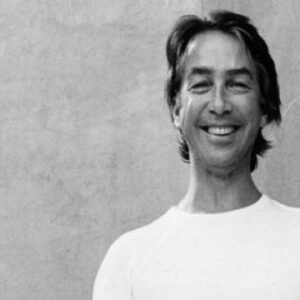Don Dunstan was a politician from South Australia best remembered for serving as the 38th Attorney-General and 35th Premier of the same state. He is widely regarded as an outspoken and charismatic politician who is dedicated to the causes of consumer protection, lower voting ages, reduced censorship laws, anti-discrimination laws, environmental causes, universal suffrage, and other reforms. He has also been vocal about the decriminalization of homosexuality and other social issues. In addition to his political views, he is frequently linked to trends of the so-called “Dunstan Decade,” such as growing multiculturalism in Southern Australia and increased cultural exchange with Asia.
Early Childhood & Life
Don Dunstan was born to Australian parents with Cornish ancestry on September 21, 1926, in Suva, Fiji.
Until Don became unwell at the age of 7, his parents, Francis Vivian Dunstan and Ida May Dunstan reared their son in Fiji, where Francis worked for the Adelaide Steamship Company.
He resided with his maternal grandparents in Murray Bridge, South Australia, from the age of seven until the age of 10 in the hopes that the drier climate might help his condition.
He returned to Fiji at the age of ten with the goal of starting his secondary education there. Instead, he went back to Australia to enroll in St. Peter’s College after being awarded a full scholarship for his success in public speaking.
He did not board at the institution while attending a private school in Australia; instead, he lived with a family in Adelaide’s beachside neighborhood of Glenelg. He graduated in 1943 and was one of the top 30 students in the state to graduate that year.
Don Dustan’s Career
Dunstan attended secondary school before enrolling at the University of Adelaide, where he studied law and the arts while becoming more and more active in student political groups.
He and his wife Gretel relocated to Fiji in 1949, where he was admitted to the bar and started practicing law.
He moved back to Adelaide in 1951 and started building a legal practice there. For a short time, he took in boarders as he set up shop.
He started his political career in 1953 when he was nominated as the Labor Party’s candidate in the Norwood electoral district. He won the seat and was subsequently elected to the South Australian House of Assembly.
He gained notoriety for his candid political style in 1953 when he used unusually strong language to oppose the LDL’s introduction of the “Government Electoral Bill.”
He once more earned a lot of public attention in 1958 for his vehement objection to the way the Max Stuart trial was handled, which further cemented his standing as a reformer and defender of social welfare issues.
He was elected president of the State Labor Party in 1960, and despite his best efforts, he was unable to become either the opposition leader or deputy leader.
He fought against the “White Australia Policy” between 1961 and 1965, finally succeeding in 1965 and receiving most of the credit.
He became the public favorite in the lead-up to the 1968 elections, with polls indicating an 84 percent approval rating. He was just the Leader of the Opposition, though, as a hung parliament with evenly divided party lines was the outcome of the elections.
With 27 seats, he led his party to victory in the 1970 elections, giving it the majority.
He served as South Australia’s Premier from 1970 to 1979, the so-called “Dunstan Decade,” being the 35th person to hold the position.
He returned to his legal origins by becoming South Australia’s 38th Attorney-General in 1975.
He announced his departure from office in 1979 after his wife passed away in 1978 and his health began to deteriorate.
Recognition & Achievements
His first position in his “life after politics” was as the temporary editor of the journal POL in the years 1980 to 1981.
To the amazement of many of his constituents, he left the state of South Australia where he had worked for so long to become the director of tourism for Victoria in 1982.
He served as the chairman of various civic groups and held academic positions in the fields of politics and public administration during the 1980s and 1990s.
He also contributed articles to the publication “Adelaide Review” in the 1990s, covering a variety of political and social subjects.
Personal Legacy & Life
From 1949 to 1974, Dunstan and Gretel Dunstan were wed, giving birth to one daughter and two sons. He remarried in 1973, this time to Malaysian journalist Adele Koh. They were together until Adele’s untimely death in 1978.
He first met Stephen Cheng in 1986, and they cohabitated in Norwood for Dunstan’s battle with lung and throat cancer during his latter years of life.
After suffering from a serious illness for several years, he passed away on February 6, 1999, from an incurable form of lung cancer.
In honor of him, the University of Adelaide created the Don Dunstan Foundation.
The Don Dunstan Award has been granted by the Adelaide Film Festival since 2003 to outstanding members of the Australian film industry.
In his honor, the South Australian Electoral Commission changed the Norwood seat to the Dunstan seat.
Estimated Net Worth
Don is one of the wealthiest and most well-liked politicians. Our research of Wikipedia, Forbes, and Business Insider revealed that Don Dunstan has a net worth of $5 million.
Trivia
He and his business partner Stephen Cheng founded “Don’s Table” as a restaurant in 1994.
He was labeled a “maverick” or, in the words of one of his professors, a “congenital rebel” throughout his years at private school.
When asked about his family history, he once responded, “I’m a refugee from it, and thank God for somewhere honest to run to!” He disliked being identified by his family background.
He was a student who had previously belonged to the University Socialist Club and, for two weeks, the Communist Party before joining the Labor Party.


